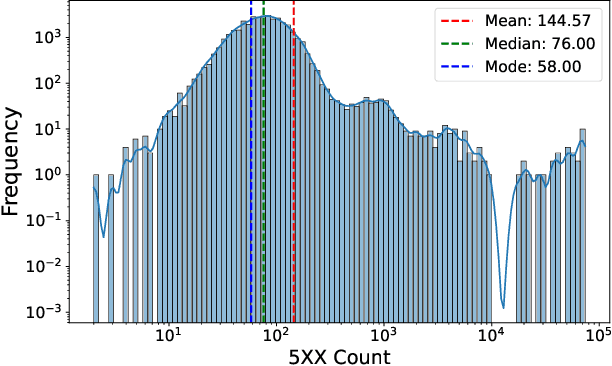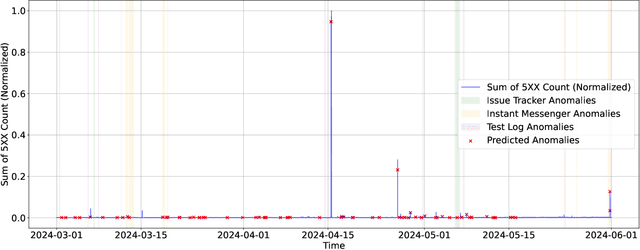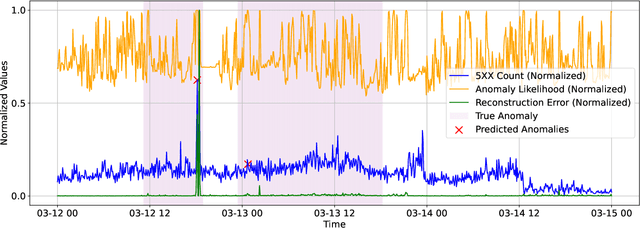Janakan Sivaloganathan
Anomaly Detection in Large-Scale Cloud Systems: An Industry Case and Dataset
Nov 13, 2024



Abstract:As Large-Scale Cloud Systems (LCS) become increasingly complex, effective anomaly detection is critical for ensuring system reliability and performance. However, there is a shortage of large-scale, real-world datasets available for benchmarking anomaly detection methods. To address this gap, we introduce a new high-dimensional dataset from IBM Cloud, collected over 4.5 months from the IBM Cloud Console. This dataset comprises 39,365 rows and 117,448 columns of telemetry data. Additionally, we demonstrate the application of machine learning models for anomaly detection and discuss the key challenges faced in this process. This study and the accompanying dataset provide a resource for researchers and practitioners in cloud system monitoring. It facilitates more efficient testing of anomaly detection methods in real-world data, helping to advance the development of robust solutions to maintain the health and performance of large-scale cloud infrastructures.
Automating Quantum Software Maintenance: Flakiness Detection and Root Cause Analysis
Oct 31, 2024Abstract:Flaky tests, which pass or fail inconsistently without code changes, are a major challenge in software engineering in general and in quantum software engineering in particular due to their complexity and probabilistic nature, leading to hidden issues and wasted developer effort. We aim to create an automated framework to detect flaky tests in quantum software and an extended dataset of quantum flaky tests, overcoming the limitations of manual methods. Building on prior manual analysis of 14 quantum software repositories, we expanded the dataset and automated flaky test detection using transformers and cosine similarity. We conducted experiments with Large Language Models (LLMs) from the OpenAI GPT and Meta LLaMA families to assess their ability to detect and classify flaky tests from code and issue descriptions. Embedding transformers proved effective: we identified 25 new flaky tests, expanding the dataset by 54%. Top LLMs achieved an F1-score of 0.8871 for flakiness detection but only 0.5839 for root cause identification. We introduced an automated flaky test detection framework using machine learning, showing promising results but highlighting the need for improved root cause detection and classification in large quantum codebases. Future work will focus on improving detection techniques and developing automatic flaky test fixes.
 Add to Chrome
Add to Chrome Add to Firefox
Add to Firefox Add to Edge
Add to Edge